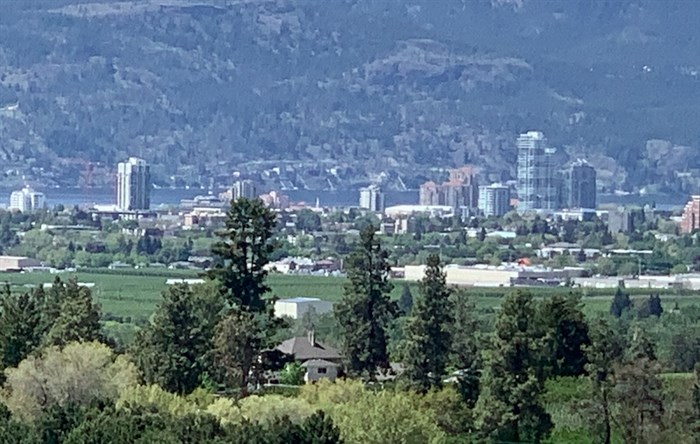Is spec tax making any difference in the Central Okanagan?
Despite ongoing objections from Kelowna and West Kelowna civic leaders to the provincial Speculation and Vacancy Tax, it’s going to continue indefinitely in those cities.
In fact, Finance Minister Selina Robinson announced July 20 that it’s expanding into more communities on Vancouver Island and the Lower Mainland because it’s been so successful in converting empty homes into rentals.
But is it really?
In the two Central Okanagan cities, which are the only Interior cities where the tax is collected, 655 property owners paid the tax in 2020 (the most recent year that data is available for).
That’s actually up more than 100 from the 548 who paid in 2019 and is even an increase from the 612 who paid in 2018, the first year the tax took effect.
So, despite the minister saying hundreds of Central Okanagan residents now have affordable homes because of the tax, there are only more non-resident owners.
READ MORE: Speculation and vacancy tax expands in B.C.
Robinson expanded the markets where the tax will be collected by saying it has been highly successful.
“The tax is working as designed,” she said. “It encouraged the return of approximately 20,000 condo units into the rental market in Metro Vancouver.”
The tax was imposed on some Lower Mainland and Victoria area cities, along with Kelowna and West Kelowna, in 2018 in an effort to cut down on foreign owned vacant homes in those areas.
In fact, only 41 of the 655 people who paid the tax in the Central Okanagan in 2020 were listed as foreign residents while 247 were from B.C. and 275 from other parts of Canada.
Robinson also cited a review of the tax released in June of this year.
That document says the tax “helped to add 18,000 units to the long- term rental market in Greater Vancouver.”
That assertion was based on Canada Mortgage and Housing Corporation rental market reports covering those years.
The 2019 CMHC report does say there were 8,824 condo conversions in the Greater Vancouver area in 2019. That followed the loss of more than 6,000 condos from the rental pool in the previous three years.
And, while the speculation tax may have played a role, it was just one of many factors, according to CMHC.
Rental demand was very high in the city at the time and some owners likely took a profit on their investments and sold to owner-occupiers, it speculated.
But, along with the provincial spec tax (0.5% of the assessed property value for B.C. residents), there is also a City of Vancouver Empty Homes Tax, which is 3%, and strict restrictions on short term rentals.
A further 3,631 condos were converted in 2020.
That’s for a total of only 12,455.
CMHC reported no conversions took place in 2021.
“Those interested in repurposing their property to long-term rental have now likely done so,” it said in its 2021 rental market survey report.
Annual reports on the Speculation tax show that, in 2018 there were 11,188 properties in B.C. that paid the tax.
That dropped by more than 3,800 in 2019 – the same year all those condos in Vancouver were converted.
That number jumped up by more than 800 in 2020 to 8,180. More than half of those were in the Metro Vancouver Regional District and more than 1,000 were in the Capital Regional District that includes Victoria.
The Central Okanagan, meaning Kelowna and West Kelowna, had 655 owners who were taxed in 2020, the highest number since the tax was imposed.
To contact a reporter for this story, email Rob Munro or call 250-808-0143 or email the editor. You can also submit photos, videos or news tips to the newsroom and be entered to win a monthly prize draw.
We welcome your comments and opinions on our stories but play nice. We won't censor or delete comments unless they contain off-topic statements or links, unnecessary vulgarity, false facts, spam or obviously fake profiles. If you have any concerns about what you see in comments, email the editor in the link above.




